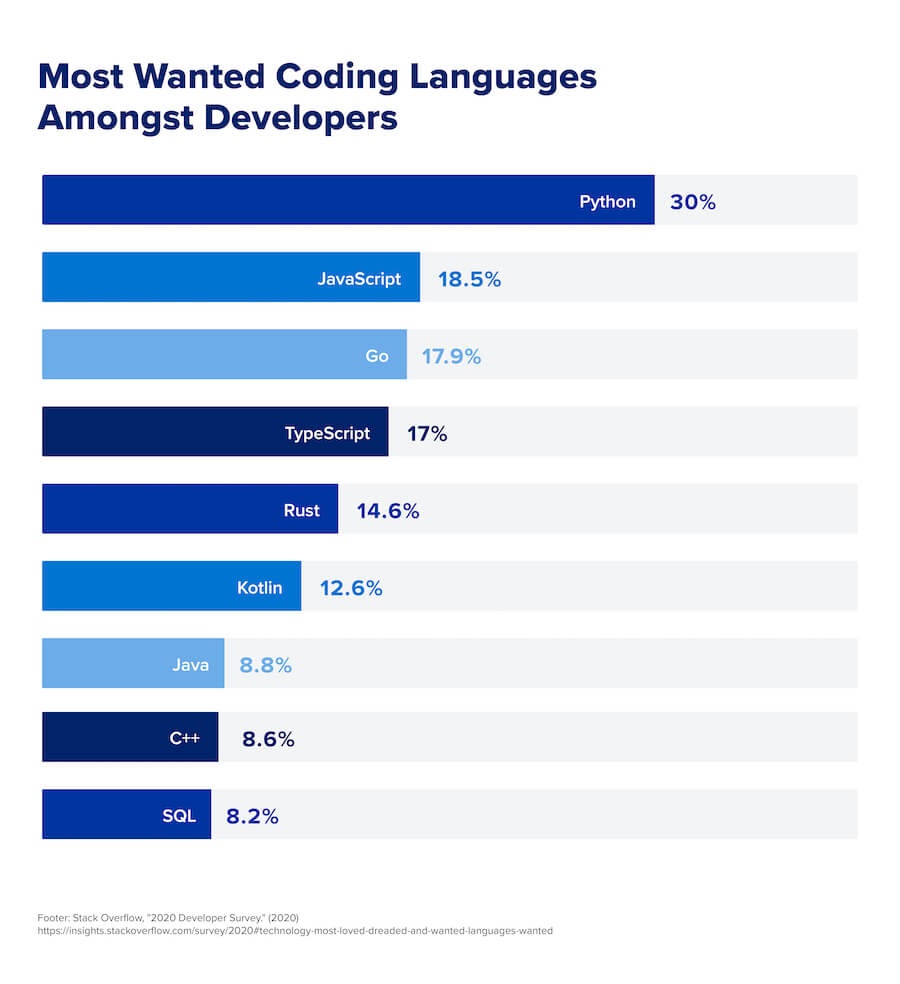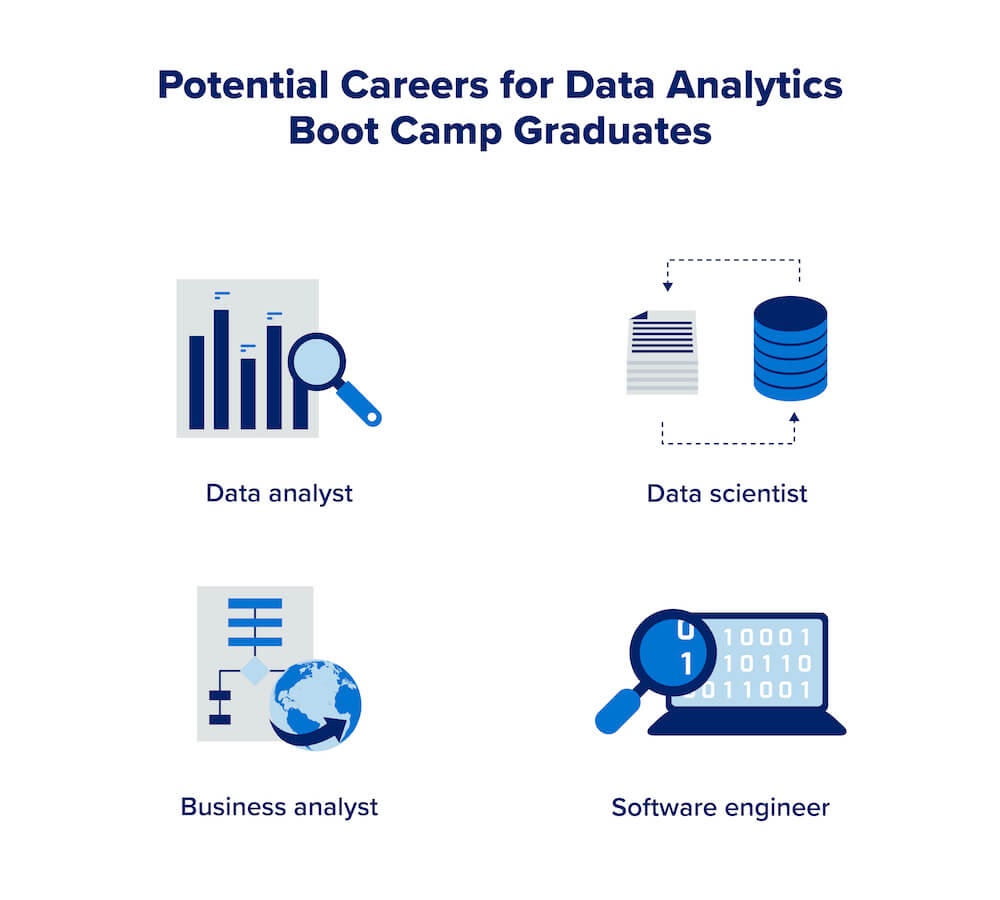To be competitive in today’s tech job market, you need top-notch skills. Learning how to code with Python through a bootcamp can be an effective way to get up to speed, find your dream job, and start getting paid for doing something you love.
Python is arguably one of the most popular programming languages among today’s top developers. In a 2020 Stack Overflow survey, nearly half of all responding developers said they use Python and also voted Python among their most-loved languages. Python is considered one of the easiest languages to learn, as the syntax is comparatively simple and uses English words. These features make Python an excellent option for industry newcomers, aspiring upskillers, and professionals looking to switch careers entirely. A Python bootcamp can help to compress that learning curve, saving time and money otherwise spent on a computer science degree.
Specialization is vital in today’s job market. Instead of studying computer science theory, multiple languages, and their corresponding technical skills in a college program, bootcamp learners can focus tightly on their chosen discipline. In doing so, they can develop proficiencies more quickly and pursue careers in coding, development, fintech, and a host of other tech industries.

 Live Chat
Live Chat

